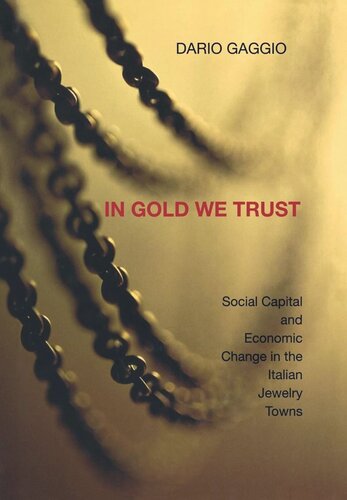

Most ebook files are in PDF format, so you can easily read them using various software such as Foxit Reader or directly on the Google Chrome browser.
Some ebook files are released by publishers in other formats such as .awz, .mobi, .epub, .fb2, etc. You may need to install specific software to read these formats on mobile/PC, such as Calibre.
Please read the tutorial at this link: https://ebookbell.com/faq
We offer FREE conversion to the popular formats you request; however, this may take some time. Therefore, right after payment, please email us, and we will try to provide the service as quickly as possible.
For some exceptional file formats or broken links (if any), please refrain from opening any disputes. Instead, email us first, and we will try to assist within a maximum of 6 hours.
EbookBell Team

0.0
0 reviewsIn Gold We Trust is a historical and sociological account of how, by the late 1960s, three small Italian towns had come to lead the world in the production of gold jewelry--even though they had virtually no jewelry industry less than a century before, and even though Italy had western Europe's most restrictive gold laws. It is a distinctive but paradigmatic story of how northern Italy performed its post-World War II economic miracle by creating localized but globally connected informal economies, in which smuggling, tax evasion, and the violation of labor standards coexisted with ongoing deliberation over institutional change and the benefits of political participation.
The Italian gold jewelry industry thrived, Dario Gaggio argues, because the citizens of these towns--Valenza Po in Piedmont, Vicenza in the Veneto, and Arezzo in Tuscany--uneasily mixed familial affection, political loyalties, and the instrumental calculation of the market, blurring the distinction between private interests and public good. But through a comparison with the jewelry district of Providence, Rhode Island, Gaggio also shows that these Italian towns weren't unique in the ways they navigated the challenges posed by the embeddedness of economic action in the fabric of social life.
By drawing from a variety of disciplinary backgrounds, ranging from economic sociology to political theory, Gaggio recasts the meanings of trust, embeddedness, and social capital, and challenges simple dichotomies between northern and southern Italy.